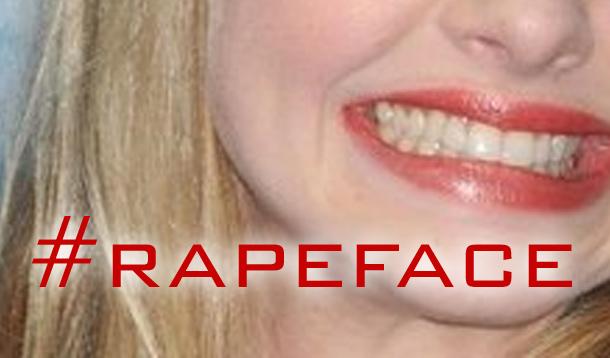
Have you heard the term "rape face"? You might want to ask your tween or teen. It actually has nothing to do with rape, per se, but that didn't make it any less shocking when those words were uttered by the 12-year-old son of this Huffington Post writer.
Allow me to break it down for you. Instagram, Vine, and Twitter are all over #rapeface, which refers to an "awkward smile." Yes, it's the kind of stuff young people find hysterical.
But for the rest of us rape remains a four-letter word that cannot be diluted by popular culture, try as it might to blur lines that should be clear as day.
Events in Steubenville and elsewhere prove that rape culture is alive and well without such pithy phrases as rape face. Language matters. Rhetoric matters.
In fact, rape face isn't as innocuous as it sounds. When it got its meme start in 2008, it did in fact refer to the "expression on the face of a man before he is about to rape a woman." Since then it has evolved into a less monstrous colloquialism.
But any time the word 'rape' is used as part of a joke, even unwittingly, we are diminishing its impact. As the writer suggests, the term rape face "trivializes sexual assault, it normalizes the issue and it creates a climate where rape is accepted."
Our kids need to know this kind of lingo is pointedly not cool, even if no harm or ill-will is intended. Take it back to that picture of the man about to commit an assault. Is the woman smiling? She is the face we need to paint for our kids. A sister. A friend. A mother.
Is this kind of slang no big deal, or does it inadvertently desensitize kids to the very act it refers to?